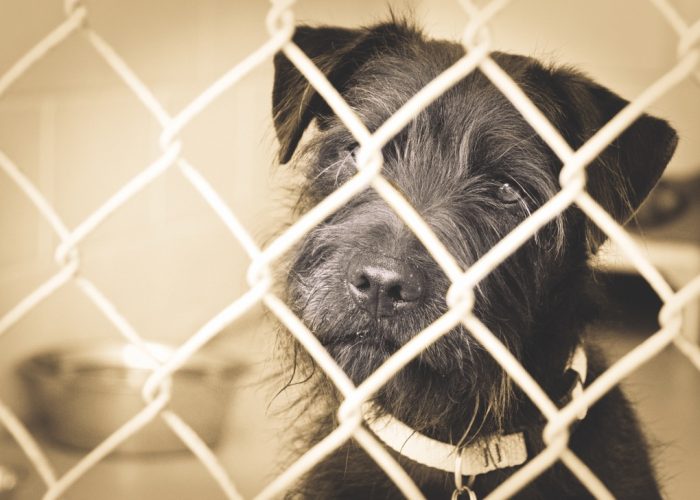By Matthew Kearns, DVM

Things are opening up in 2021 and, as we approach both Thanksgiving, more traveling is done both to visit and vacation. This may include boarding our pets while we travel.
Infectious tracheobronchitis (ITB), AKA “kennel cough,” is a common infection seen as boarding facilities fill up. The bacteria responsible for kennel cough is Bordetella bronchiseptica. Bordetella bronchiseptica is in the same class as a human respiratory infection called Bordetella pertussis, or “whooping cough.”
The name “kennel cough” came from outbreaks in areas where dogs and cats are kept in close quarters (i.e., kennels and boarding facilities, doggy day care, shelters, grooming facilities, etc). The bacteria is transmitted via airborne route and is easily passed from pet to pet. When one pet coughs or sneezes it releases the bacteria into the air and when another pet breathes in they become infected. We are very familiar with this type of transmission during the COVID pandemic.
Symptoms of kennel cough do not usually progress beyond a mild to moderate upper respiratory infection. Patients develop runny eyes and nose, sneezing and a dry, hacking cough. Most times antibiotics and a cough suppressant are all that are needed.
Complications occur in higher risk groups. Groups that are higher risk are the very young (they have not had a chance to develop their immune system), the very old (their immune system is failing), and the immunocompromised (certain medications or pre-existing diseases that compromise the immune system). These patients are at higher risk of developing a secondary pneumonia that can be a life-threatening condition. In these cases pets may have to be hospitalized for intravenous fluids and medications (including oxygen). Rarely, pneumonia is fatal.
There is a vaccine against kennel cough available for both dogs and cats. There are three forms of the vaccine: injectable, intranasal, and oral. The intranasal vaccine is most effective but can be more difficult to administer (especially in excited or aggressive animals). Veterinarians may have to choose the injectable or oral because some protection is better than none at all.
Common side effects of the vaccine are mild swelling and pain at the injection site. Some develop a low-grade fever for a day or two. Uncommon side effects are that the pet will actually develop a mild form of kennel cough from the vaccine (like some people with the flu, or COVID vaccine). Anaphylactic reactions are rare.
If you are going to board your pet this holiday season please consult with your veterinarian BEFORE making arrangements. Almost all kennels and boarding facilities require a kennel cough vaccine within 6 months of boarding before admitting your pet. To provide the best immunity have the vaccine administered at least five days before boarding. Safe travels and be prepared.
Dr. Kearns practices veterinary medicine from his Port Jefferson office and is pictured with his son Matthew and his dog Jasmine.





